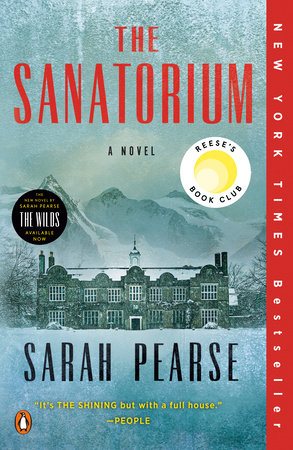READERS GUIDE
QUESTIONS AND ANSWERS…1. The hotel at the heart of the novel, Le Sommet, was converted from a tuberculosis sanatorium. How do the building’s history and design shape the narrative? Would you choose to stay in a hotel with a history like Le Sommet’s? Why or why not?
2. How do you think the remote alpine setting helps to heighten the sense of claustrophobia and isolation both within the novel and within Elin’s own mind?
3. In order to solve the case, Elin must overcome her fear of water and learn how to control her panic attacks. What advice would you give to someone who is struggling with a particular fear or anxiety and wants to move past it?
4. Elin and her brother, Isaac, have a difficult relationship for much of the novel. How does their dynamic change over the course of the book? Do you think they navigate their relationship successfully throughout? What could they have done differently?
5. There are several strong female characters within the novel. Do you think the choice of a female detective as the protagonist is important to the novel and the themes it covers?
6. Elin discovering the real story behind her younger brother’s death forces her to confront some uncomfortable truths. Do you think deception can have a positive impact in certain circumstances, or does it only ever have negative consequences?
7. The past haunts Elin—in both her private and her professional spheres—when she arrives at Le Sommet. How does her personal history affect the decisions she makes throughout the novel?
8. Did you expect any of the reveals throughout the book? Did the ending surprise you? Why or why not?
9. The hotel’s past touches on an uncomfortable subject: the suppression and control of women’s lives and how people often choose to “look the other way” when faced with the evidence. To what extent do you still think that is still true today? Discuss.

